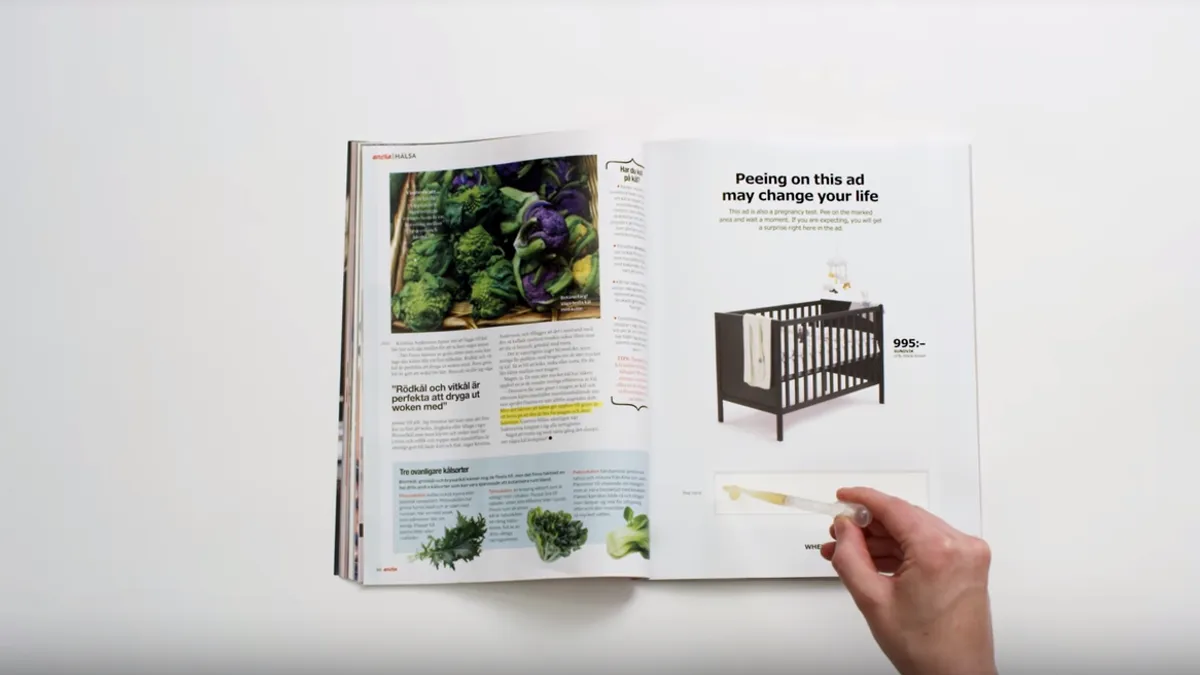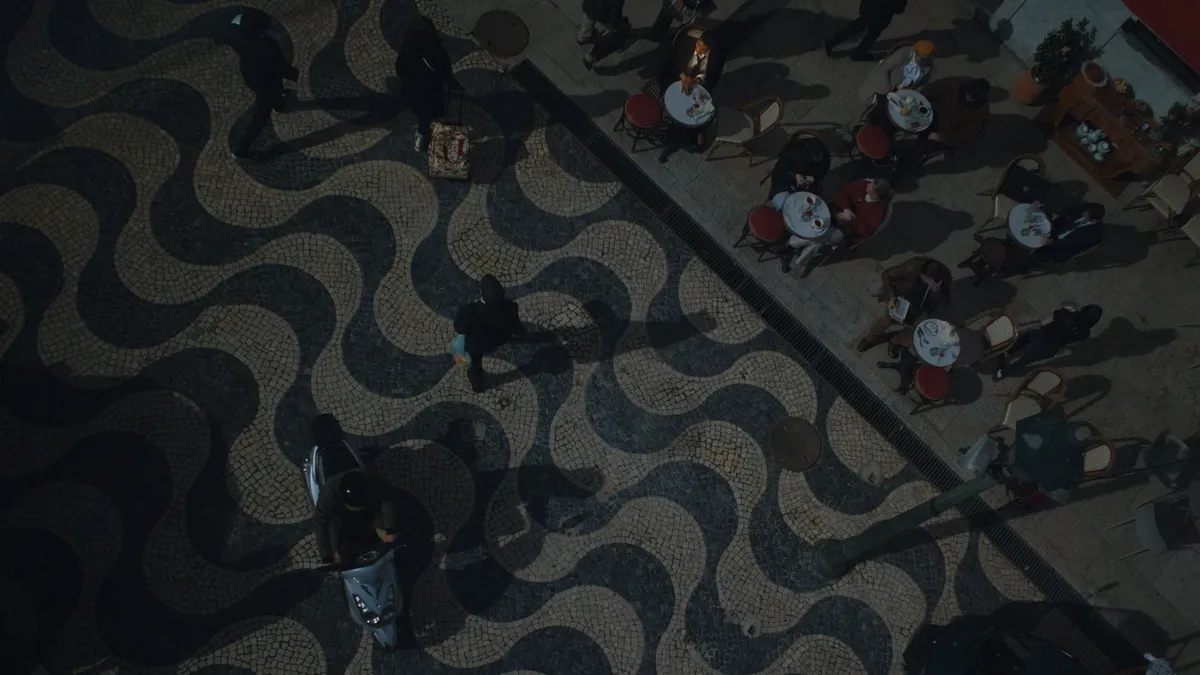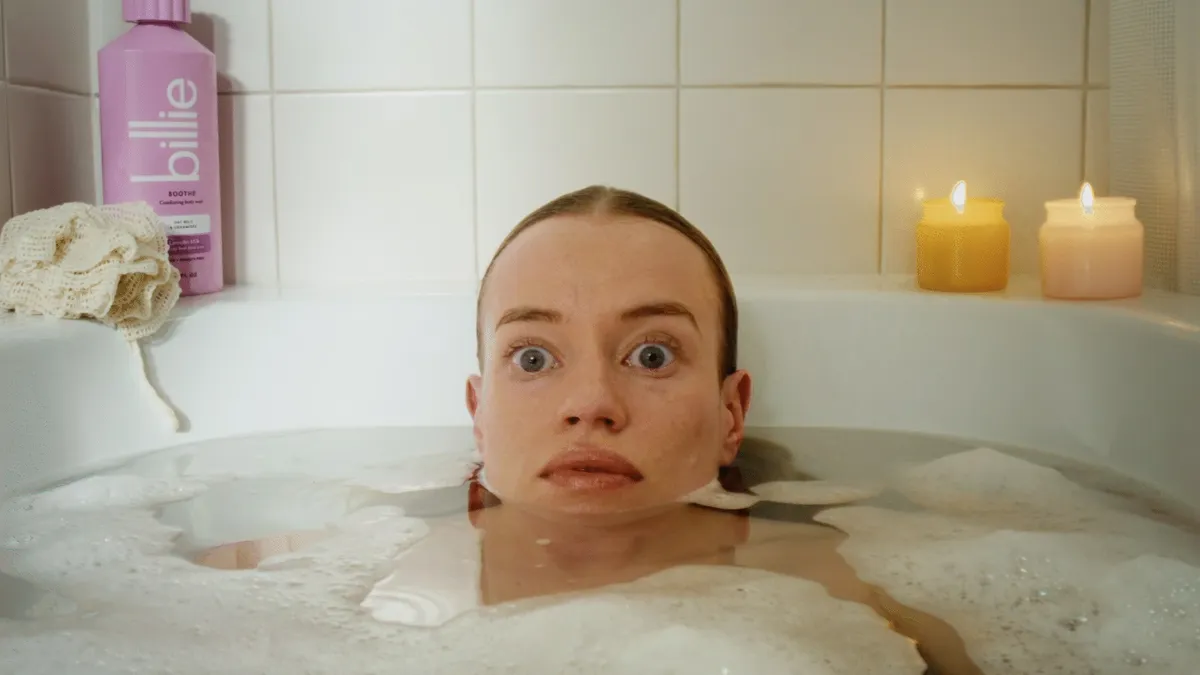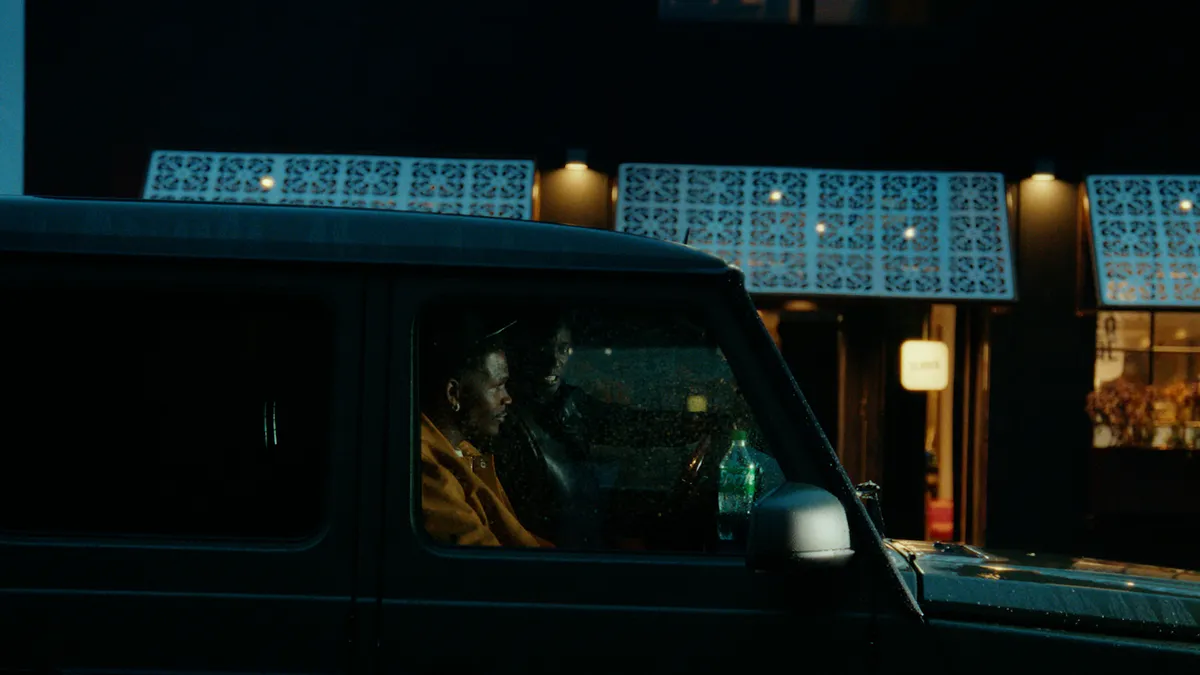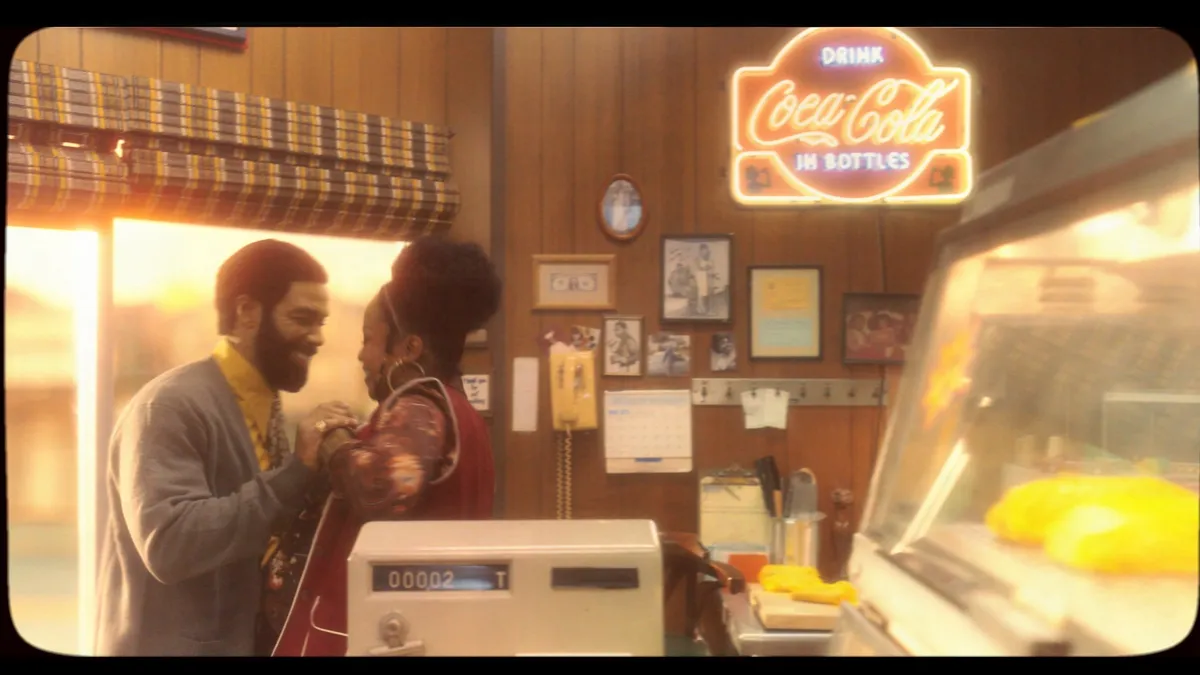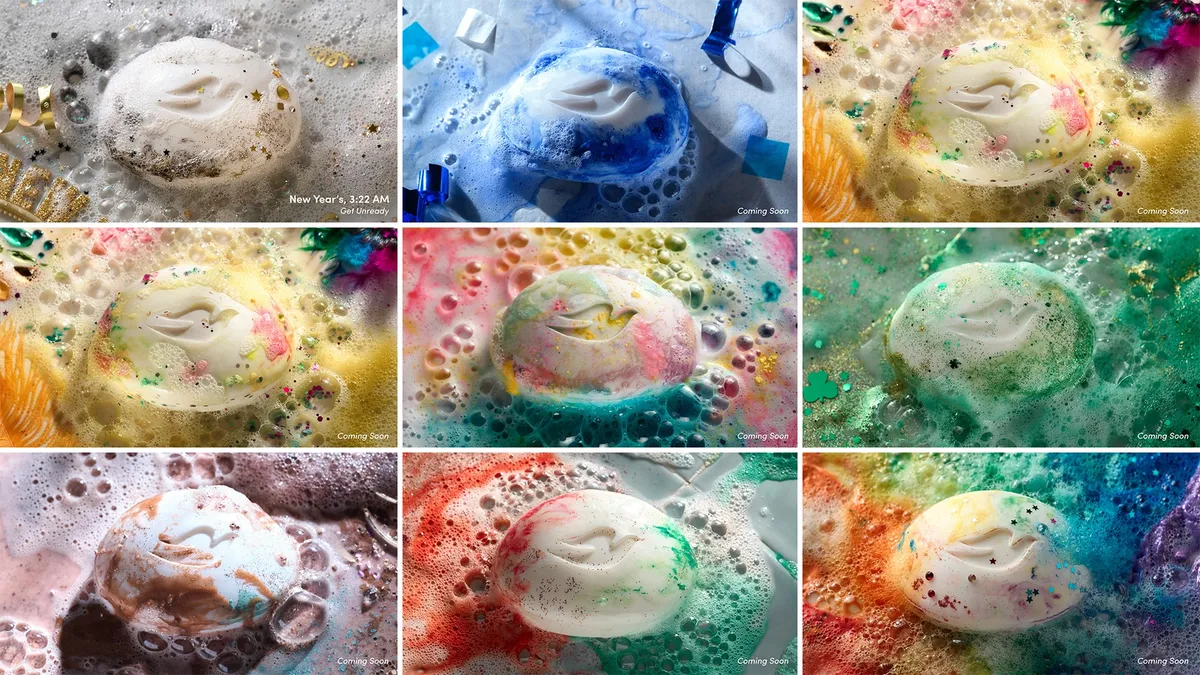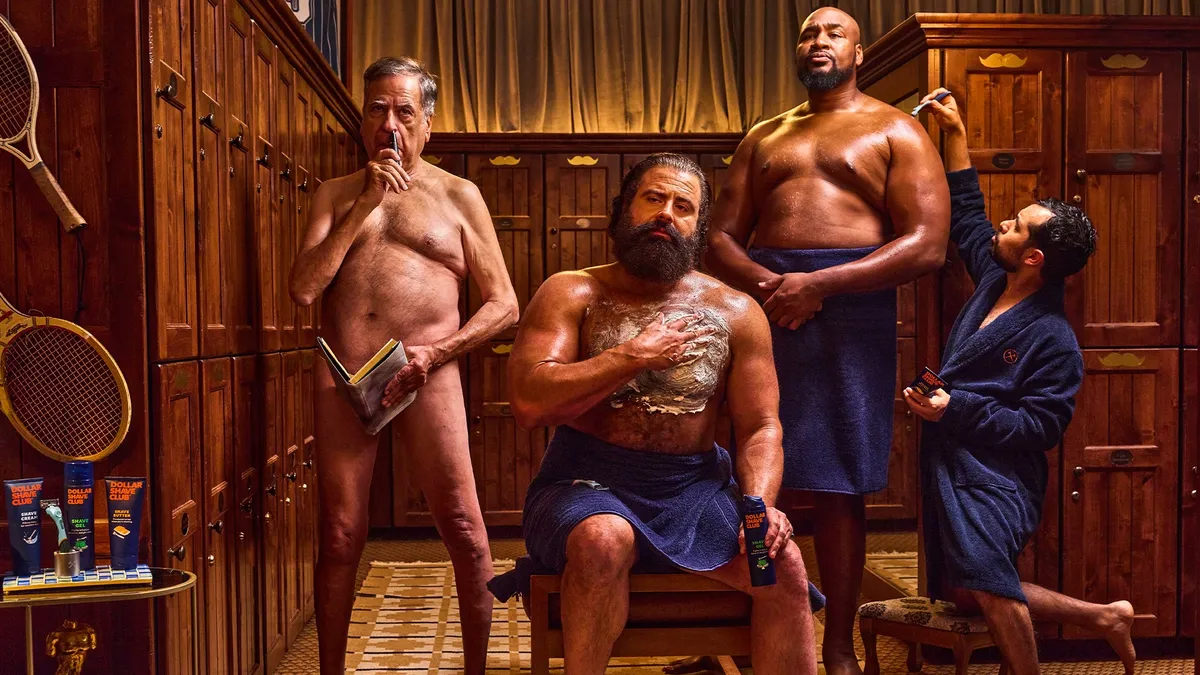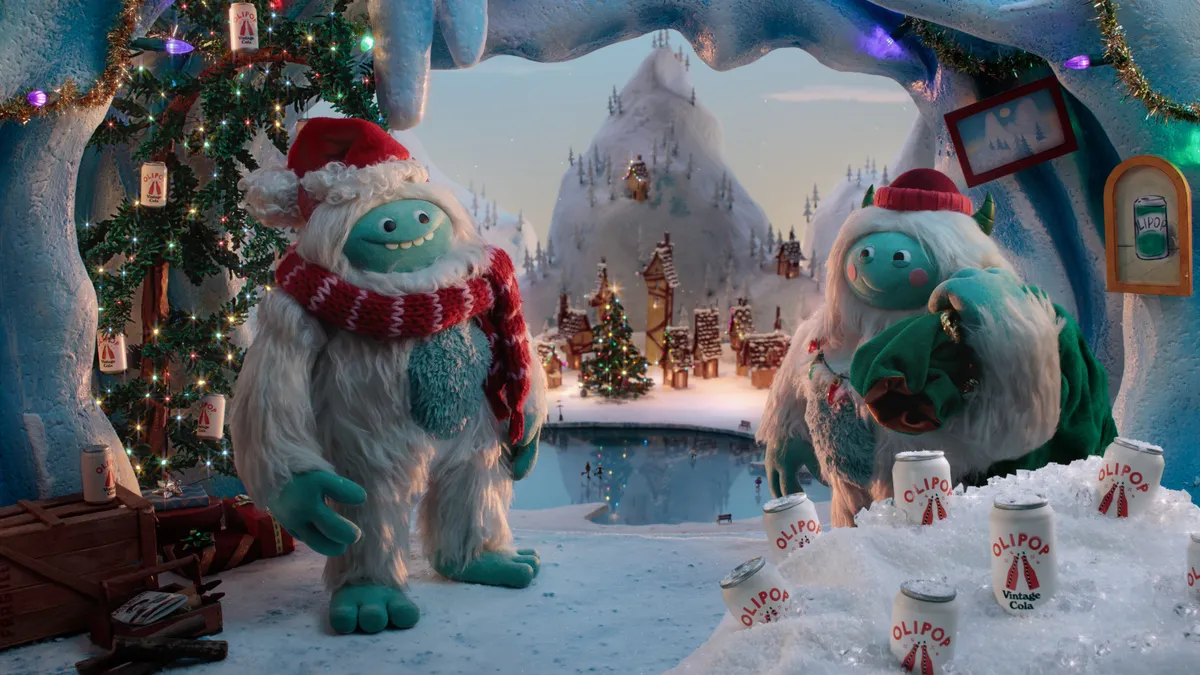Campaign Trail is our look at some of the best and worst new creative efforts from the marketing world
Marketers are trying to kick off 2018 with a bang, whether through oddball stunts, limited-edition gear or revamping core products. Below, Marketing Dive puts some of the most noteworthy campaigns of the new year so far under the microscope, finding two brands with winning strategies that tie-in a strong real-world component and one digital push that fails to pop.
Ikea wants you to 'pee on this ad' for a discount
The rundown: Need a crib? More importantly, need to know if you need a crib? Either way, Swedish retailer Ikea's got you covered.
The homeware giant and its agency Åkestam Holst unveiled an unusual — yet undeniably attention-grabbing — ad for a baby crib in the Swedish women's magazine Amelia with a simple tagline: "peeing on this ad may change your life." The paper — developed with the help of Mercene Labs — is made from similar technology to a pregnancy test, and if you're with child, a discounted "family price" appears after a few moments of dripping urine on it, according to Adweek.
The next step, it appears, is to hand over the pee-soaked page to the cashier at your local Ikea.
The results: Ikea is no stranger to unique baby-themed promotions. In 2013, it ran one in Australia that gave away free cribs to parents that birthed a baby exactly nine months after Valentine's Day. The furniture giant is kicking off 2018 with a stunt that's already generated a lot of chatter online, with mixed reactions from some people loving the creative idea, while others are, naturally, a bit grossed out.
Either way, the company discovered a crafty way to use print to drum up some organic buzz online, furthering the reach of the campaign. The innovative move fits well into the brand's ongoing "Where Life Happens" campaign, which intends to shine a light on ordinary, relatable moments in families. It also reminds customers about the brand's Ikea Family loyalty program.
Though Marketing Dive doesn't recommend relying solely on the ad to determine whether you're expecting, it's a neat move by Ikea to get potential parents through the doors of its cavernous outlets, and makes you ask yourself: what would you do for a good sale?
—Natalie Koltun
Coca-Cola really, really wants millennials to like the new Diet Coke
The rundown: The Coca-Cola Company this week announced sweeping changes to its Diet Coke brand, including a packaging redesign, four new flavors and a marketing campaign to promote it all. The change doesn't affect the taste of regular Diet Coke but does bring flavor variations like Ginger Lime, Feisty Cherry, Zesty Blood Orange and Twisted Mango into the fold, along with slimmer, taller cans intended to be "insta-worthy," per a post shared, oddly enough, on the brand's Twitter page.
The goal here is to court millennial consumers, who're often favoring tea, water and other, less-sugary alternatives to soda — a trend that's hurt Coke's soft drink business in recent years. The brand is promoting the refresh heavily on social media, including through a Facebook, Instagram and YouTube video titled "Millennials Try the New Diet Coke Flavors for the First Time."
"Millennials are now thirstier than ever for adventures and new experiences, and we want to be right by their side," Rafael Acevedo, Coca-Cola North America's group director for Diet Coke, said in a statement. "We're contemporizing the Diet Coke brand and portfolio with sleek packaging and new flavors that are appealing to new audiences."
Coke's R&D arm spoke to more than 10,000 people across the U.S. and experimented with 30 different flavor ideas before settling on the new line-up.
The results: Coke is certainly hitting on all the big marketing buzzwords (see: 'insta-worthy,' millennial 'experiences') in its bid to revitalize the now 36-year-old Diet Coke brand. The Facebook, Instagram and YouTube spots replicate the type of product unboxing and reveal videos that are incredibly popular on those platforms and YouTube, in particular. The sleeker packaging is also designed to be socially-shareable in a way that recalls fellow fizzy beverage La Croix, a brand that's become a millennial touchstone.
While Coke is rolling out a larger integrated campaign later this month when the new packaging and flavors hit shelves, there's little about the current offerings that makes much of lasting impression. The problem might be one of showing rather than telling, where so much of the marketing is blatantly catered at capital-M millennials that there's little room for anything else. It's all executed in a way that could also come across off-putting to those not in the age set.
The push comes at a bit of an awkward time as well: Coke last year introduced a corporate branding campaign that downplays the dominant role of soda in its roster in favor of positioning the brand as a "total beverage company" through products like Honest Tea, Odwalla juice and Smartwater.
—Peter Adams
Adidas's limited-edition sneaker is also a Berlin subway ticket
The rundown: In Berlin, Adidas is selling just 500 pairs of a limited-edition sneaker emblazoned with the same pattern that appears on seat covers in the city's Berliner Verkehrsbetriebe (BVG) public transportation system, according to a press release provided to Marketing Dive. Even better, the shoes have an annual ticket for the BVG embedded in their tongue.
This makes the shoes, priced at approximately $216 a pair, a relative bargain considering an annual BVG ticket usually sells for around $869. The EQT Support 93/Berlin will be available starting Jan. 16 in the Adidas Originals Flagship Store and at Overkill in Berlin. The idea for the shoe was developed by advertising agency Jung von Matt/SAGA.
The results: Limited-edition products continue to be a go-to strategy for popular lifestyle brands as a way to appeal to loyal fans while driving excitement. The Adidas partnership with Berlin's public transportation network is one of the more unique examples and is based on the insight that the city's street culture has played an important role in shaping the Equipment, or EQT, brand which was originally launched in the early '90s.
"With this specific project, we wanted to thank all of the EQT sneakerheads in Berlin for their loyalty and passion. Through connecting people at the heart of the city, BVG was the perfect inspiration for this limited EQT 93/17," said Till Jagla, senior director at Adidas Originals, in a statement.
Limited-edition products from brands like KFC and Taco Bell have quickly sold out and it wouldn't be surprising if the Adidas sneakers do the same, setting them up to become a collector's item. Berlin residents who can afford the price tag and are regular users of the city's public transportation will see them as a great deal.
Whether or not the tie-in with the BVG — and the use of the system's seat cover design — will appeal to bonafide street culture representatives is another story and depends on how positively Berliners feel about the public transportation system. The BVG is celebrating 90 years of operation in 2018 and, like most public transport in large, older cities, is the most efficient way to get around but still draws ire from users over slow and late trains as well as finding the best routes for getting around.
—Chantal Tode


